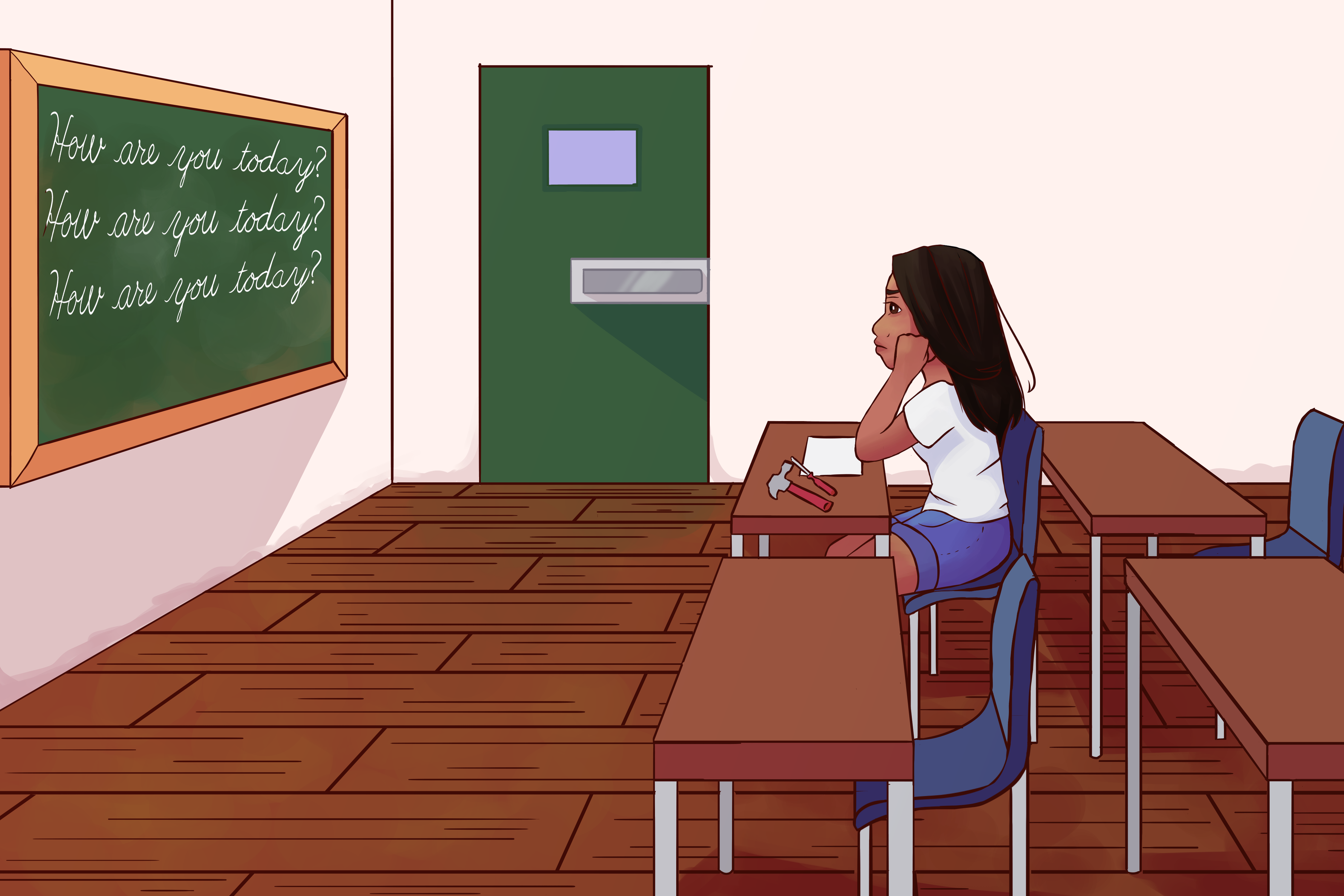Editor’s Note: Below you will find the Judge’s Award winning entry“Under the Feet of Jesus: A Journey of Evolution and Conquest, written by Edison High student Julissa Gaytan as a part of the inaugural Sherley Anne Williams & Lawson Fusao Inada Writing Contest. Find out more about the contest here.

In the selected excerpt of her novel, Helena Maria Viramontes details the life of Estrella, a curious and intellectually frustrated child restricted by the impressions others have of her due to her physical characteristics. Being that she is a child, Estrella has a lack of control over what goes on in her life and her voice lacks significance to the adults around her. Due to her being of Hispanic descent and the child of migrant workers, her instructors view her as dirty and are much more concerned with her cleanliness than they are with teaching her, ultimately cheating Estrella of her education. The constant denial of comprehension and understanding has brewed anger while also spurring feelings of determination to achieve what has been neglected of her. These sentiments remain until that curiosity is fed which in turn facilitates an evolution within Estrella.
It is essential to know other characteristics of Estrella because they affect and explain her conduct. Evidenced by her description of letters to that of “pry bars..hammers…[and] nails,” and her explicit statement of her not being able to “decipher” the alphabet, we can deduce Estrella is illiterate. Given her inquisitiveness and hating when information is concealed from her it is clear Estrella wants to learn. She wants to uncover the meaning of the alphabet and the things around her, including Perfecto Flores’ tools, but her teachers continuously ignore her questions and essentially starve her of the education she hungers for. They go through lengths to improve her hygiene and one in particular, Mrs.Horn, had sparked such despair in the young girl that she made our protagonist feel minuscule and unimportant – exposing Estrella to the painful effects of words. Rejected by the schoolyard, she looked elsewhere to alleviate her mind from obscurity.
Estrella encounters Perfecto Flores, the acclaimed man who earned his name of perfect by the job he performs with his tools. Unlike the cold shunning of her teachers, he is welcoming and enlightens her with his expertise, taking the time to explain the name and purpose of each tool. Estrella is unaccustomed to such interest taken in her, and she listens intently. After years of being deprived, she has finally found someone who has given her a feast of knowledge. Serving as a momentous event, she holds one of Perfecto’s tools in her hand. She feels powerful with it, but she recognizes that the strength this tool possesses is affirmed by the name – the word – bestowed upon it. Estrella’s adamant attitude has brought her an interaction with someone who has eradicated an area of confusion in her life and has encouraged her to acquire the ability to read.
The journey of Estrella’s relationship with literacy and the parallel Viramontes creates between words and tools has morphed her development as a character. She has undergone various experiences where words have left immensely contrasting impacts on her. Mrs.Horn asking why her mother never gave her a bath made Estrella feels as though she was “not enough.” Her hygiene routine, being one that was strenuous for her to endure, was still insufficient for her. Despite having endured the other teachers’ racist behaviors, this particular comment made her realize words can be, “as excruciating as rusting nails” piercing her tender skin and blemishing her self-image. Her other impressionable encounter with the power of words was much more pleasant and less damaging to her self-esteem. Estrella understood that the names of the tools are what gave them “meaning” and purpose. She recognized the reparative and destructive capabilities these words brought to the tools and to her, ultimately serving as the basis for her want to gain control of them. Expanding her capacity and mastering her application of words became “essential” for Estrella to have which in turn nourished her questioning nature and fulfilled her firm attitude.
The diction and figurative language Viramontes employs reflects the transforming character of Estrella as well as a change in tone as the story progresses. Viramontes use of words and details describing how Estrella was “silent with rage,” and how because of her anger she is subject to the “evil eye,” convey a tone that is quite abrasive. Coupled with her similes comparing words to tools in various instances, being that they were both equally “confusing” and “foreign” to Estrella, as well as comparing the words to “rusted nails,” not only add to the harsh tone but also demonstrate Estrella’s hot temper and her unfamiliarity in the first half of the excerpt. The tone’s redirection is apparent in the contrasting diction Viramontes uses with Estrella’s interaction with Perfecto. The handyman’s background evokes a sense of wonder and curiosity, being that his real history is unrecorded and are only documented in “dreams,” and, “unspoken memories,” creating a complementary character to Estrella’s own curious nature. The use of Spanish interchanged between them, such as “manitas,” and instructional verbs, create an environment of endearment where Estrella gains self-confidence, evident in her being able to “understand,” and feeling and accepting the “power and significance” the tools rewarded her with as she held them. The tone shift demonstrates a shift in Estrella’s character as well – one in which she sheds her anger and confusion and embraces her newfound knowledge.
Viramontes documents a snippet of the life of Estrella. Her constant desire and need to have her questions answered are not unexpected given that she is a child and like most children, they are often denied of that fulfillment by the adults that feel pestered by the bombardment of questions. To add insult to injury, the teachers in these institutions continuously neglected their duty to educate and took on the role to ridicule and humiliate the young girl for being, in their eyes, unclean. Her active approach to learning was discouraged in an environment that is meant to nurture it however, her disappointments were eradicated with the interaction of an illiterate and kind handyman. Ringing true to life, Viramontes has our protagonist find answers in the most unlikely of places. She also has Estrella’s string-minded nature serve as her redemption of taking control of an area of her life that was used to break her. Estrella is an echo of success that few in the world exemplify: conquering, despite the obstacles and tumultuous challenges they encounter, the very thing that has demised part of their soul and transforming it to facilitate and motivate their ambitions.


